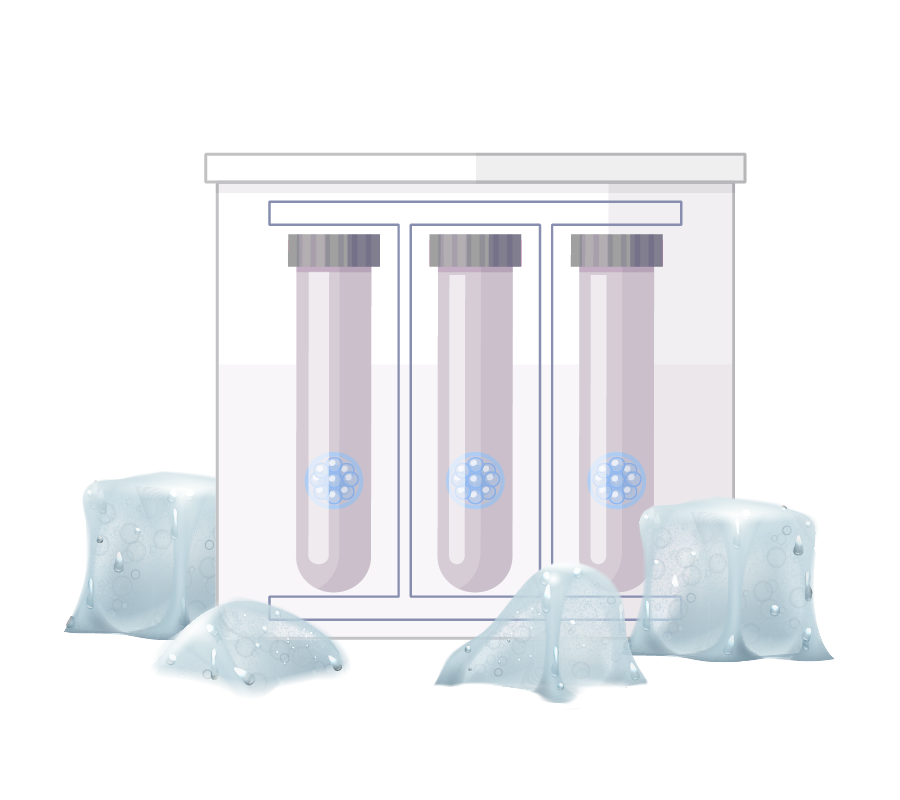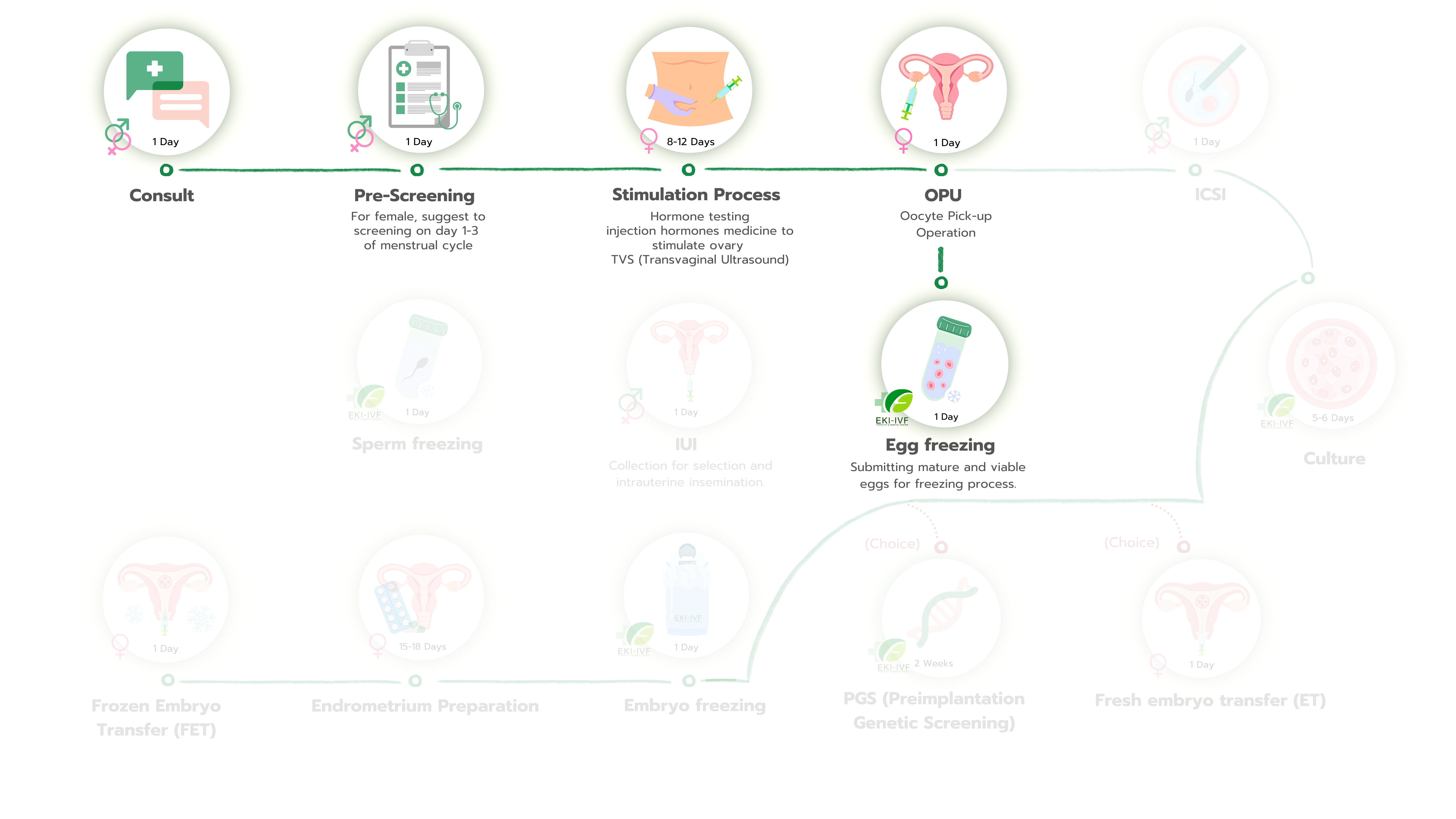In Vitro Fertilization (IVF) Process
Egg Freezing
Egg freezing is a fertility preservation technique that involves rapidly cooling eggs to extremely low temperatures using a process called Vitrification Freezing. This process halts the eggs’ biological clock, allowing them to be stored for future use.
Why freeze eggs?
A woman’s eggs decline in quality as she ages. As a result, both egg count and fertility naturally decrease over time. Egg freezing offers a solution by preserving high-quality eggs at a younger age, which can be used for future pregnancies when ready.
At what age should you freeze your eggs?
- While egg freezing can technically be done at any age as long as there are still viable eggs, the optimal age for oocyte cryopreservation is generally considered to be before 35. This is because female fertility naturally declines after age 35. Therefore, if you are over 35 and not ready to have children but plan to do so in the future, it’s crucial to consult with a fertility specialist as soon as possible to discuss egg freezing options. The sooner you freeze your eggs, the better the chances of a successful pregnancy later on, as egg quality and quantity tend to decrease with age.
How long can frozen eggs be stored?
- Frozen eggs can be stored indefinitely, but annual maintenance costs apply.
How frozen eggs are used?
- The frozen eggs will undergo a thawing process in the laboratory.
- The male partner is required to provide a semen sample for analysis.
- The thawed eggs will be fertilized with the male partner’s sperm using the ICSI method.
- The process will continue following “the standard IVF/ICSI protocol.”

Tips for Preparing (Female)
Before egg retrieval for freezing, ovarian stimulation is required to promote the growth of multiple follicles and retrieve as many eggs as possible.
- Baseline Appointment: Schedule an initial appointment within the first three days of your menstrual cycle. A blood test will be conducted to assess your response to fertility medications.
- Medication Administration: Attend follow-up appointments as scheduled and take prescribed medications as directed. “Typically, during one cycle of stimulation, you will see the doctor about 3 times before the egg retrieval.”
- Duration of Stimulation: Ovarian stimulation involves daily medication for 8-12 days prior to egg retrieval.
- At each visit, blood will be drawn to check hormone levels and a transvaginal ultrasound (TVS) will be performed to monitor the growth of the follicles.
- Trigger Shot and Egg Retrieval: Once the eggs have reached the appropriate size, your doctor will administer a final injection, known as a trigger shot, to stimulate the eggs to mature fully. Approximately 34-36 hours after the trigger shot, the eggs will be fully mature, and you will be scheduled for an egg retrieval procedure (OPU; Ovum Pick Up).
- Ovum Pick Up (OPU): An egg retrieval procedure (OPU) involves a minor surgical procedure performed under anesthesia. A thin needle is inserted through the vagina to collect the eggs from the ovaries.
- Post-Procedure Recovery: After the egg retrieval procedure, you will be asked to rest in the clinic for approximately 1-2 hours before being discharged. An overnight stay is typically not required.
- Screening and freezing: The retrieved eggs are transferred to the laboratory for evaluation. Only mature, viable eggs will be selected for freezing.
Egg Freezing Procedure and Timeline
